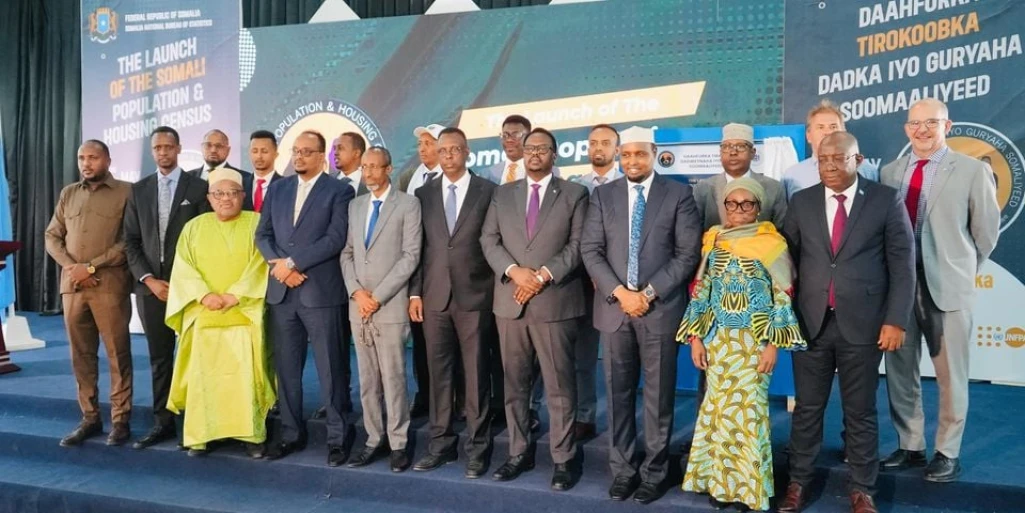
Somalia is to conduct its first national census in 48 years, underlining the country’s desire to have adequate data on its population and economy.
The office said the actual count will provide the government with critical information needed to design and implement policies that meet the needs of its citizens.
The lack of up-to-date population and housing information has hampered informed decision-making on the country’s development needs, as most population data is estimated by external agencies, officials say.
“Data generation and data use are at the heart of governance. It is paramount for good governance,” said Salah Jama, Somalia’s deputy prime minister, at the launch of preparatory events in Mogadishu.
“It is paramount for development gains.”
Niyi Ojuolape, UNFPA’s country representative in Somalia, said the census will be useful in addressing some of Somalia’s perennial problems, such as the health needs of certain population groups.
“The census is an important tool to ensure that we have accurate and up-to-date data on our population and housing needs. This will enable us to plan and implement development policies and programmes that will improve the lives of all Somali citizens,” Ojuolape said in a statement.
Somalia has faced significant challenges in conducting a comprehensive census since the collapse of its central government in 1991. The last successful census was conducted in 1975. But the UN official said it didn’t provide a complete picture.
Anita Kiki Gbeho, the UN Secretary-General’s Deputy Special Representative in Somalia, said these steps will help the country take ownership of its data, as the laws provide for local and transparent collection and compilation.
“A census is an important milestone in Somalia’s journey towards sustainable development,” she said.
According to the Somali National Bureau of Statistics, the census will collect vital information about the country’s population, including social and economic characteristics and housing conditions. The data collected during the census will help inform the allocation of government resources and determine funding levels for critical programmes such as health, education and social welfare.
The census will cover all regions, including displaced persons and refugees.
“This will ultimately lead to improved governance and stable democratisation,” said Ojuolape.
The census comes as the country grapples with security challenges posed by the militant group al-Shabaab and climate shocks such as drought and floods, which have combined to displace more than two million people.